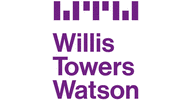
Willis Towers Watson
Global Knowledge Management Lead
Posted on Dec 6 Chicago, IL 481 views
The Role
Strategy Development:
Develop and Implement Strategy:
Create a global knowledge management strategy that aligns with the organization’s goals and objectives.Content Quality and Accessibility:
Ensure that all knowledge content is high-quality, up-to-date, and easily searchable. Tailor content to meet the needs of various audiences, including different skill levels and roles within the organization.Continuous Improvement:
Regularly review and refine the knowledge management strategy to adapt to changing organizational needs and industry trends.
Leadership:
Team Management:
Lead, mentor, and develop a team of knowledge management professionals. Provide guidance and support to ensure team members are equipped to perform their roles effectively.Culture Building:
Foster a culture of continuous learning and improvement within the team and the broader organization. Encourage innovation and the sharing of best practices.Performance Management:
Set clear performance expectations and conduct regular evaluations to ensure team members are meeting their goals.
Collaboration:
Cross-Functional Partnerships:
Work closely with various departments, including IT, HR, and business units, to identify knowledge gaps and develop solutions to address them.Stakeholder Engagement:
Engage with key stakeholders to understand their knowledge needs and ensure alignment with organizational priorities.Knowledge Sharing:
Promote a collaborative environment where knowledge is freely shared across teams and departments.
Program Management:
Program Design and Development:
Oversee the design, development, and delivery of knowledge management programs. Ensure these programs are aligned with business objectives and meet the needs of the organization.Implementation and Monitoring:
Implement knowledge programs and monitor their effectiveness. Make adjustments as needed to ensure they are achieving desired outcomes.Resource Allocation:
Manage resources effectively to support the development and delivery of knowledge programs.
Content Management:
Content Creation and Organization:
Oversee the creation, organization, and dissemination of knowledge assets. Ensure that content is accurate, well-organized, and easily accessible to all employees.Content Governance:
Establish and enforce content governance policies to maintain the quality and consistency of knowledge assets.Content Lifecycle Management:
Manage the lifecycle of knowledge content, including creation, review, updating, and archiving.
Technology Integration:
Tool Selection and Implementation:
Identify and implement advanced knowledge management tools and technologies to enhance information sharing and collaboration.System Management:
Oversee the management and maintenance of knowledge management systems. Ensure they are user-friendly and meet the needs of the organization.Innovation:
Stay abreast of emerging technologies and trends in knowledge management. Evaluate and integrate new tools and technologies as appropriate.
Performance Measurement:
Metrics Development:
Develop and implement metrics to evaluate the effectiveness of knowledge management initiatives. Ensure these metrics align with organizational goals.Data Analysis:
Analyze performance data to identify areas for improvement. Use insights to drive continuous improvement in knowledge management practices.Reporting:
Prepare and present regular reports on the performance of knowledge management initiatives to senior leadership.
Stakeholder Engagement:
Promotion of Practices:
Actively promote knowledge management practices across the organization. Ensure that key stakeholders understand the value of knowledge management and are engaged in its implementation.Feedback Mechanisms:
Establish mechanisms for gathering feedback from stakeholders. Use this feedback to improve knowledge management practices and ensure they meet the needs of the organization.Alignment with Priorities:
Ensure that knowledge management initiatives are aligned with organizational priorities and support the achievement of business goals.
Best Practices:
Identification and Implementation:
Identify best practices in knowledge management from within the organization and from external sources. Implement these practices to drive innovation and efficiency.Continuous Learning:
Encourage continuous learning and the adoption of best practices within the knowledge management team and the broader organization.Benchmarking:
Benchmark the organization’s knowledge management practices against industry standards and make recommendations for improvement
The Requirements
- 8 - 10 years of experience in knowledge management within a large global organization.
- Strong understanding of GBS and Centralization strategies.
- Able to move from technology captures to AI and Automation.
- Ability to work in a fast-paced and knowledge-driven environment while juggling multiple priorities.
- Ability to manage and motivate team members to optimize team effectiveness, collaboration and to work in a continuous improvement environment.
- Strong analytical abilities and experience in executing innovative approaches.
- Experience with working alongside and influencing stakeholders across different levels of seniority and successfully influencing outcomes.
- Excellent verbal and written communication skills, including the ability to comfortably engage with and build trust with remote teams and internal customers.
- Demonstrate a global, multicultural, and cross functional mind set.
- Possess strong change leadership and management skills to empower improvements drive change.
- Experience working in a shared services operations environment is a plus.
- Availability to travel as business requires.
- Advanced knowledge of various knowledge base and case management tools as well as Microsoft Office products and SharePoint.
Company Benefits
WTW provides a competitive benefit package which includes the following (eligibility requirements apply):
Health and Welfare Benefits:
Medical (including prescription coverage), Dental, Vision, Health Savings Account, Commuter Account, Health Care and Dependent Care Flexible Spending Accounts, Group Accident, Group Critical Illness, Life Å˽ðÁ«´«Ã½Ó³», AD&D, Group Legal, Identify Theft Protection, Wellbeing Program and Work/Life Resources (including Employee Assistance Program)Leave Benefits:
Paid Holidays, Annual Paid Time Off (includes paid state/local paid leave where required), Short-Term Disability, Long-Term Disability, Other Leaves (e.g., Bereavement, FMLA, ADA, Jury Duty, Military Leave, and Parental and Adoption Leave), (Washington State only)Retirement Benefits:
Contributory Pension Plan and Savings Plan (401k).
EOE, including disability/vets
Same Posting Description for Internal and External Candidates

